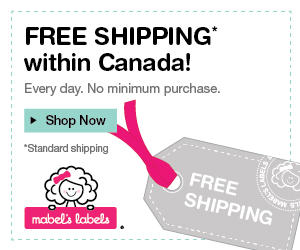Five Tips for Protecting Your Privacy On the Web
This page may contain links to Amazon.com or other sites from which I may receive commission on purchases you make after clicking on such links. Read my full Disclosure Policy

For most of us, the internet is now our primary method of communicating with colleagues, clients, and suppliers. Although sometimes it seems like privacy is a thing of the past, it’s crucial that we never let our guard down. My guest today, Christopher Wallace, has some important advice to help us keep our information and our accounts secure.

What if an identity thief could correctly guess your social security number based solely on information that they found online about you? If you opt not to have a Facebook profile, do you think people could figure out with any degree of accuracy whether or not you knew another non-Facebook member?
Believe it or not, both of those scenarios are already possible. A study earlier this year in the journal PLOS One found that with 85 percent accuracy, researchers could determine whether two non-Facebook members with a mutual friend also knew each other.
So what’s the big deal? It can be a little unsettling to constantly be giving apps and software approval to access our personal information or our entire Facebook profile, but to many people, it’s worth the convenience. And I’m not saying that it’s a bad idea to give useful apps free reign to use our information to help us.
On the other hand, Facebook’s facial recognition software that eases the photo tagging process is a bit spooky. Another study at Carnegie Mellon University found that 30 percent of people walking down the street at the college could be identified by Facebook’s technology.
Wherever you go, there you are. Now, if you’re already checking in on Foursquare and Tweeting about lunch, is there any problem with a person (or hidden camera) being able to snap your photo and identify you and your whereabouts?
We’ll leave that ‘1984′ conversation for another time. For now, hopefully it’s obvious enough that it’s wise to cover your tracks when you’re browsing the internet, especially when shopping or accessing sites that store your information.
To protect your privacy without completely giving up the web and hiding in your closet, take advantage of these simple tools:
1. Do Not Track
Have you noticed how your shopping habits online seem to follow you around? I recently bought my wife a diamond necklace. During my research, I visited a popular online site for diamonds. Three months later, that site’s ads still mysteriously appeared in my screen within other sites that have nothing to do with jewelry.
If that creeps you out or even just annoys you, take advantage of Do Not Track features now included in most major browsers. I use Mozilla Firebox. Activating Do Not Track is as simple as going to Preferences, finding the Privacy tab, and clicking Do Not Track. With that feature enabled, sites cannot store ‘cookies’ on your computer that then follow you around as you browse for weeks to come.
Disabling tracking is equally easy in Safari, Internet Explorer, and Google Chrome. Instructions for disabling tracking in each can be found here.
2. Watch What You Say
If studies are already showing what can be learned about people who don’t even use Facebook, imagine what can be found about active social media users. For a start, set your Facebook profile to ‘private’ so that only your friends can view your posts. More importantly, don’t use your passwords in conversation on the web. You’d be amazed how many people use their pet’s name for a password and then go blabbing about Fido on Twitter. If your password utilizes your year of birth and your pet’s name – both of which are typically available somewhere on the web – you’re asking for trouble.
3. Log Out
The vast, powerful potential of Google, Amazon, and Facebook lies in the information cache they have on each of their users. In addition to advertisements tailored directly to you, the information you post online will affect the results when people search for your name on the internet. As an added safety measure, don’t browse the web while logged into an account. If you keep your Gmail account open while searching for new stilettos, expect to notice shoe ads in the margin of your Google searches later that week. Try using a different search engine than the company you use to store email and work accounts.
4. Email
Nobody wants spam, but we ask for it when we enter our email address all over the web. Consider starting a second account. Use a primary address for friends, family and secure online accounts, and use the other for online purchases and contact with strangers.
5. Be Cryptic
I have over 80 different accounts online that utilize a password. How do I know that? Because I keep a list. Of course, there’s no way I could remember that many passwords and which ones correspond to which site. Many people cope by utilizing the same one or two password variations across the web.
But if one of those sites gets hacked, your login information could open up doors across the web, including to your bank account.
Utilize unique passwords that include a symbol and a number. It’s okay to pick 4 or 5 words and create variations of these. I personally use Dropbox to store a spreadsheet that keeps all of my passwords. They’re stored in a way only I can read them – for example, password ‘Rover727+’ might just read ‘R7+.’ Only I know what the ‘R’ and the ‘7′ signify, just in case that file ever fell into the wrong hands. Because I store it on Dropbox (services like Google Drive or even within an email can work as well), I can access all of my passwords from wherever I am in a neat, organized manner.
Do you have any horror stories of your online privacy being invaded? What steps have you taken to protect yourself?
Photo © Sydney Alvares / PhotoXPress










